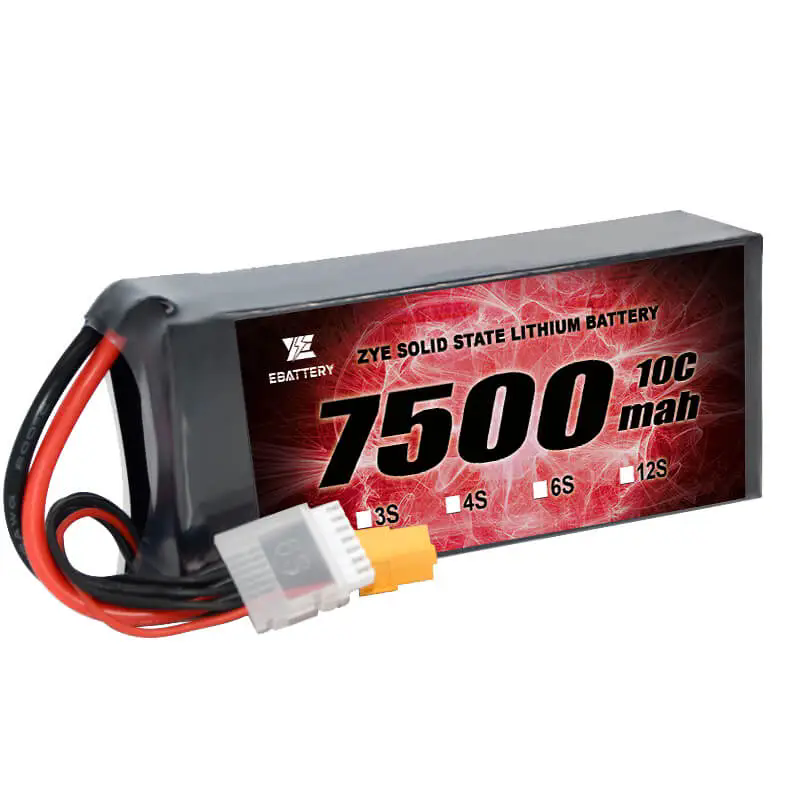HV Solid State Batteries: The Future of High-Voltage Energy Storage
2024-09-04
As the demand for more efficient, safer, and higher-capacity energy storage solutions continues to rise, HV solid state batteries are emerging as a promising technology poised to transform the energy storage landscape. These advanced batteries are set to revolutionize various industries, from electric vehicles to renewable energy storage, by offering enhanced performance and safety. In this blog, we’ll explore what HV solid state batteries are, their advantages, and their potential applications.
What are HV Solid State Batteries?
HV solid state batteries (High-Voltage Solid State Batteries) are a type of advanced battery technology that uses a solid electrolyte instead of the liquid or gel electrolytes found in traditional lithium-ion batteries. The "high-voltage" designation refers to these batteries' capability to operate at higher voltages compared to conventional batteries, which can enhance their energy density and overall performance.
Key Features of HV Solid State Batteries
1. Solid Electrolyte
The defining feature of HV solid state batteries is their use of a solid electrolyte. This solid electrolyte can be made from various materials, including ceramics, sulfides, or polymers. Unlike liquid electrolytes, solid electrolytes are less likely to leak or cause short-circuiting, leading to improved safety and reliability.
2. High Voltage Operation
HV solid state batteries are designed to operate at higher voltages than traditional lithium-ion batteries. This capability allows them to deliver more energy per unit of weight or volume, which translates to improved energy density and efficiency.
3. Enhanced Safety
The use of solid electrolytes in HV solid state batteries significantly enhances safety. Solid electrolytes are less flammable and less prone to thermal runaway compared to liquid electrolytes, reducing the risk of battery fires and explosions.
4. Improved Longevity
These batteries are known for their longer lifespan compared to traditional lithium-ion batteries. The solid electrolyte reduces degradation over time, allowing HV solid state batteries to maintain their performance and capacity for more extended periods.
5. Wide Temperature Range
HV solid state batteries can operate efficiently across a broader range of temperatures. This capability makes them suitable for applications in extreme environments where conventional batteries might fail.
Benefits of HV Solid State Batteries
1. Higher Energy Density
One of the most significant advantages of HV solid state batteries is their high energy density. The ability to operate at higher voltages allows these batteries to store more energy in a smaller and lighter package, which is crucial for applications like electric vehicles (EVs) where space and weight are at a premium.
2. Enhanced Safety
The solid electrolyte reduces the risk of leaks, fires, and thermal runaway, making HV solid state batteries a safer option for high-stakes applications. This improved safety profile is especially important for consumer electronics and transportation sectors.
3. Extended Battery Life
HV solid state batteries offer longer cycle life and better performance over time. This longevity means fewer replacements and lower maintenance costs, providing long-term value for users.
4. Greater Temperature Tolerance
With their ability to function effectively in a wide range of temperatures, HV solid state batteries can be used in various environments, from high-altitude locations to extreme cold conditions.
5. Environmental Impact
The improved efficiency and longer lifespan of HV solid state batteries contribute to a reduction in waste and environmental impact. Additionally, the absence of liquid electrolytes reduces the risk of harmful chemical leaks.
Applications of HV Solid State Batteries
1. Electric Vehicles (EVs)
In the automotive industry, HV solid state batteries are set to revolutionize electric vehicles by offering higher energy density and longer driving ranges. Their safety and durability make them ideal for use in electric cars, trucks, and buses.
2. Renewable Energy Storage
For renewable energy systems, such as solar and wind power, HV solid state batteries provide an efficient and reliable solution for storing energy. Their high energy density and long lifespan make them suitable for large-scale energy storage systems.
3. Consumer Electronics
HV solid state batteries can enhance the performance of consumer electronics like smartphones, laptops, and tablets. Their compact size and high energy density allow for longer battery life and more efficient devices.
4. Aerospace and Defense
In aerospace and defense applications, where reliability and safety are paramount, HV solid state batteries offer a robust solution for powering critical systems. Their ability to operate in extreme temperatures and harsh conditions is particularly valuable in these sectors.
5. Medical Devices
Medical devices requiring reliable and long-lasting power can benefit from HV solid state batteries. Their safety and performance characteristics are ideal for powering life-support systems, implants, and diagnostic equipment.
Conclusion
HV solid state batteries represent a significant advancement in energy storage technology, offering higher energy density, enhanced safety, and improved longevity compared to traditional battery technologies. As the demand for efficient and reliable energy solutions grows, these batteries are poised to play a pivotal role in various industries, from electric vehicles to renewable energy storage. By understanding the features, benefits, and applications of HV solid state batteries, businesses and consumers can make informed decisions and embrace the future of energy storage. With their promise of greater performance and safety, HV solid state batteries are truly at the forefront of next-generation energy technology.



